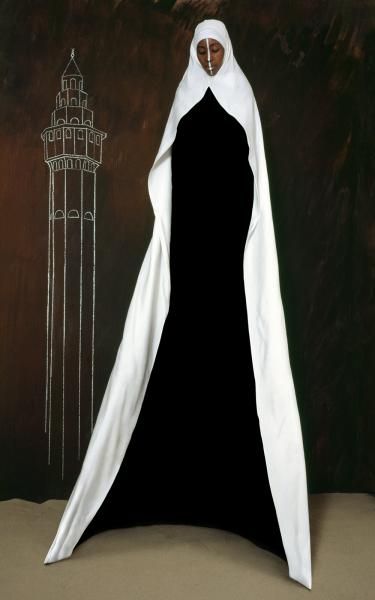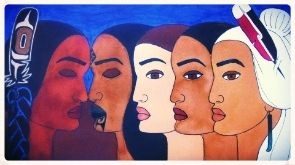 |
| Jina Moore |
La periodista pone de manifiesto la clara intencionalidad del escritor Alex Perry, autor del artículo, para presentar el caso como un problema relacionado con la violencia imperante en el país sudafricano, debido a sus particularidades sociales, económicas y políticas, y no como un caso de violencia de género. Para ello, omite, de manera intencionada, datos relacionados con la persona y la personalidad de la víctima, su posible situación de vulnerabilidad como consecuencia de haber podido vivir situaciones de violencia con anterioridad a su asesinato y los testimonios de familiares y amigos, al tiempo que hace hincapié en el atleta y no en el asesino.
Tal y como Marta Mediano García escribía el 22 de febrero de 2013 en Píkara Magazine “El drama es el fin de su carrera, (de Pistorius), no que se imponga sobre las víctimas de violencia machista el recuerdo de que nunca fueron lo suficientemente importantes, importantes para vivir y para ser resarcidas”
La administradora del blog
'South African Violence' Only Explains the Pistorius Case If He's Not Guilty
There's a please-click-thru-six-screens cover story just published by TIME about the shooting, by track athlete Oscar Pistorius, of his girlfriend, Reeva Steenkamp. Pistorius, if you don't know, is a darling. Handsome. Charming ("but with a fiery temper," says The Australian ). And fast, even as a double-amputee -- so fast that in London last year, he became the first Paralympic athlete to compete against able-bodied contenders in an Olympic Games. In a country that "articulates its dreams through sports," Pistorius is, in writer Alex Perry's words, the "latest incarnation of South African hope."
Perry says that you can't understand the Pistorius shooting -- Pistorius denies murder -- if you don't understand Cape Town. And class. And wealth disparity. And race. And sports. And -- of course -- Apartheid.
All of these things combine in Perry's story to explain a privileged white man's fear of an imagined assailant which, according to his defense, led him to shoot his privileged white girlfriend. The only thing that doesn't seem to merit inquiry in this American banner publication -- ironically, published within 24 hours of the reauthorization of the Violence Against Women Act -- is domestic violence.
Race, class and politics work differently in different countries. I've no doubt that the intersection of those three with fear is something different than most Americans, who are TIME's intended readership, might understand. I also know, as (even!) Afrikaner friends have put it to me, that these are favorite diversionary topics of Americans: How much easier to talk about other countries' racial violence -- and, now, other countries' domestic violence -- than to talk about our own long history of violence against blacks (or women). To be sure, some of those conversations are necessary and genuine; and just as surely, others are a salve.
But here's something else a lot of Americans understand: When a man kills his partner, anywhere in the world, there's cause for concern. Not just about race, class and politics, but about domestic violence. And not just in foreign countries we categorize as especially violent: In the U.S., domestic violence accounts for more than 20 percent of all violence committed against women.
Pistorius' defense is that he shot her accidentally, thinking she was an intruder. The legal truth is playing out in court. But the defense sounds to many of us, myself included, an awful lot like the abuser's version of, "He didn't hit me, I fell down the stairs."
The South African Police don't consider domestic violence a discrete crime. If you're beaten by your boyfriend in your kitchen, it gets written up as assault, no different than if you were punched by a stranger at a bar. But in a recent study in Gauteng -- South Africa's wealthiest, most densely populated and most cosmopolitan province -- more than 50 percent of women reported experiencing some form of domestic abuse - and more than 75 percent of men admitted to abusing women. That makes it difficult to say what the rates of domestic violence might be in South Africa, but it's impossible to deny, or even to downplay, domestic violence there any longer.
The Pistorius shooting, and the violent rape and murder of 17-year-old Anene Booysen , have fueled the demand for accountability, including a national commission on gender-based violence.
And yet there's only one mention of domestic violence in Perry's piece, and it's at the top, where Perry notes that the murdered woman tweeted on the day of her death: "I woke up in a happy safe home this morning. Not everyone did. Speak out against the rape of individuals."
Perry leads with "the painful irony of a woman killed by gunshots having tweeted about violence against women" but he doesn't seem to consider it more than a good opener. Where are the interviews with people who knew Steenkamp? Where are the statements about whether her friends or family believed she felt afraid of him, or knew if he'd violated her before? Where is the requisite "he didn't/did have any prior charges filed against him for abusing women" sentence? Where is the flat-out copycatting of The Australian's nod to his violent temper? Where are so many things that would be there if the journalist thought for just a moment that this might not be about white Americans' favorite South Africa memes -- who doesn't love to talk soccer in Mandela country -- but that it might be about violence committed by a man against his partner?
Then there's this: Equating a tweet about her alleged feelings of safety from rape in her own home, clearly produced to advocate against societal silence against that crime, with the idea that she was safe from any abuse in the home, physical or verbal, is pitifully myopic. Rape is one form of assault, often against women. But saying you feel safe from rape doesn't mean you feel safe in the presence of your partner. There are a lot of other things that could come next: "I woke up in a happy safe home this morning. But I am afraid to go outside." Or: "I woke up in a safe happy home this morning. Until I remembered what happened last week." Or: "I woke up in a happy safe home this morning. Until he reached for me."
Those are not the kind of things you'd tweet if you were a public figure trying to push a pro-voice, anti-rape agenda. But apparently platitudes on a personal digital billboard are enough to conclude everything was hunky dory at the homestead -- or close enough, at least, that one need never return to the question of domestic violence.
While I'm womansplaining, let's make this clear: The tweet not only doesn't tell us anything about Steenkamp's experience with domestic violence. It also doesn't tell us about her experience with rape. The majority of rapes are committed against women by intimates, and as Nancy Schwartzman explains so wonderfully succinctly in the trailer for her documentary The Line, society doesn't make it easy for women to understand what they've experienced as rape. You were drinking? Your skirt was short? You're just too damn pretty every day? You might've been asking for it. Nothing about a publicly intended anti-rape tweet allows us to assume, as Perry did, that Steenkamp felt safe from rape -- let alone, as Perry did, all forms of violence against women.
Like any of us, I've no idea what happened in their house when Steenkamp was shot, because I wasn't there. Personally, I haven't been following the day-to-day legal proceedings closely. But any journalist who can spill six screens' worth of ink on the Big Themes of post-truth-and-reconciliation South Africa can fit a quote or two from the victim's friend -- and, what the hell, a domestic violence specialist -- into the story. Our profession's hard up, but it's not that bad.
Unless you prefer not to tarnish your virulent, handsome sports stars. And why should you, when you can get away with merely weighing them down with the usual South Africa stereotypes?



0 comentarios :
Publicar un comentario